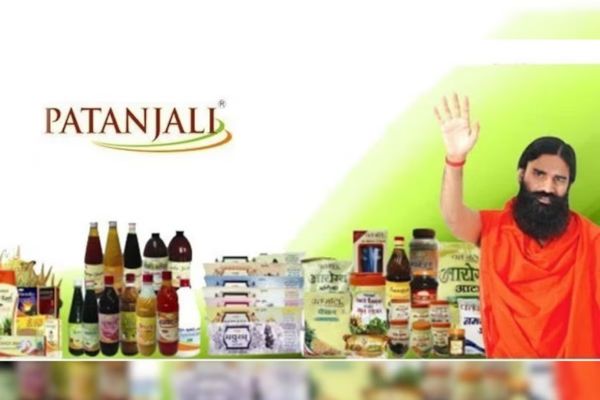Indian brands and their authenticity are something that is easily targeted by different groups over time for different reasons. There are many Indian brands be it ones that are operating within the country or the ones that are operating in foreign lands have faced backlash from a particular section of the group once or the other time.
This type of backlash and controversy creates a ruckus and a negative image of Indian products and also it deteriorates the trust of these brand’s consumers and customers in general. All of this results in the loss of the Indian Economy and the reputation of these companies.
In recent years again this trend of boycotting Indian products and services has seen to be increased. This type of extremism has taken many new forms in the present scenario. One of the major trends that have come into the limelight is targeting these Indian brands, which is seen as a symbol of foreign influence by many of those extremist groups.
Campaigns such as boycotting products, abusing the product and company on social media platforms, and burning the product are some of the forms in which this extremist idealogy can be seen easily. Today in this article, we have bought you some fascinating facts and information on this budding extremism and its ill effects on the Indian economy.
Tanishq advertisement controversy and its implications for Indian brands

The most recent example of this extremism was seen in 2020; When the world was going through the adversity of crumbling economies and the COVID-19 Pandemic. In the year 2020, India witnessed one of the biggest extremism threats which was done on the Indian jewelry brand Tansihq, owned by TATA Group.
The brand released an Advertisement for an Inter-Religious couple where they were shown celebrating their baby shower with a message to promote religious harmony in society. But as soon as the advertisement was aired on National Television, it came on the target radar of these extremists group and faced backlash from many people around the country.
This advertisement was claimed to be distorting the cultural values and traditional values of two different religions and also giving false claims on the harmonious side of the inter-religious marriage shown among the couple. With the passage of 2-3 days, the backlash became so intense on social media and national television as well that TANISHQ issued an apology for making such an advertisement. Also, it was claimed that the Boycott army which was active all around the social media platforms was able to cost a big amount of losses to the company as well.
Patanjali and the accusations of promoting Hindutva:

In 2016, Baba Ramdev’s Patanjali brand faced criticism as he was said to be promoting “Hindutva,” a nationalist ideology that seeks to promote Hindu culture and values. Many people were seen targeting the brand on the claim that the products made by Patanjali are deceiving its customers through the names and the ingredients associated with them.
The people who belonged to this extremist ideology claimed that Patanjali promoting India-made products has a hidden agenda that is to suppress foreign values and promote Hindu Values all around the country to a greater extent. This issue made it clear that extremism in India and the associated products are not just a political issue but also denote the attack of this extremism in the cultural context of India as well. This incident was one of the most surprising ways in which such extremism was manifested in the state.
Fabindia and accusations of promoting Islamization :

In the year 2018, another incident was reported at the stores of the clothing brand FabIndia. There were reports all around the country that Fab India stores were playing Islamic prayers in their stores several times a day. Lots of strikes and Twitter turmoil were seen all around the country and Fab India stores were exclusively targeted and forcibly shut down as well.
However, when the company was asked to keep its stand on the issue, the company and its management straight away denied the fact and the allegations. But this incident was proof in itself to show how this extremist ideology is seeking to promote a narrow, exclusionary version of Indian culture based on religious and ethnic identity.
This idealogy is not only harming the reputation of Indian Brands but is also an attack on the diverse and pluralistic nature of Indian society.
Impact of brand targeting on the Indian Economy

With the above-cited examples, the fact is evident that the rise of extremism in India is not just a political issue but is also a cultural one as well. The activities of targeting and boycotting the people who support this extremist ideology are seeking to promote a narrow, exclusionary version of Indian culture based on religious and ethnic identity.
This extremism will surely impact the pluralistic and diversified nature of the Indian society. These Indian brands are not just a company that gets attacked or tarnished when such an incident occurs but we should also not forget that these companies and brands are the voice of Indian Heritage, culture, and business values in foreign countries.
Attacking and boycotting these brands and companies for illogical reasons and maintaining big funded campaigns on the same for months does result in damage to the reputation of both Indian Culture and the Economic Growth of the country in the long term. It is also a fact that should be remembered before attacking or forming an opinion on these brands or companies that they are the ones who generate employment for a large number of the population in the country. These brands and companies are also the major players in the improvement of the Indian GDP and economy as a whole.
Conclusion:
In conclusion, the frequent rise in extremist ideology in recent years shows a major threat to the Indian society in general. These companies are not just collaborators and contributors to the Indian economy and GDP but are also major employers in the country. As more and more of these brands become the targets of this Extremist ideology the more it becomes harder for the country to save guards its values and principles on the International stage.
It is needed to be understood that we are living in a world of globalization. It should not be the duty and responsibility of the government, lawmakers, and courts to protect the companies and their subsidiaries but it should also be the information of civil society and its residents and citizens to step up and work towards protecting them. Ultimately as it’s always said Numbers are Power, the more people will show their strength and resilience as a whole, it will be possible for all these brands to thrive and grow in an environment of openness and inclusivity.
Read More-India’s Economy Shows Resilience in March Despite Weakening Exports and Rising Unemployment















